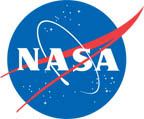 |
Langley Research CenterTurbulence Modeling Resource |
Exp: NASA Juncture Flow (JF) - Turbulent F6-Based Experimental Data
Return to: Exp: NASA Juncture Flow - Intro Page for Turbulent F6-Based Wing
Return to: Exp: NASA Juncture Flow - Intro Page Return to: Data from Experiments - Intro Page Return to: Turbulence Modeling Resource Home Page
Oil Flow Photos and Estimated Separation Sizes:
LDV Data - Velocities, Reynolds Stresses, and Velocity Triple Products:
Model Pressures (F6-based wing with horn only):
Model Unsteady Surface Pressures:
PIV Data - Velocities and Reynolds Stresses:
* The newly posted Cp data now accounts for
the total pressure deficit in the 14x22 tunnel. Taking total pressure into account causes a small change
to the static pressure calculation, which in turn affects the Cp by a small shift. This shift is hardly
noticeable when Cps are large (such as on the wing), but is noticeable - for example - at some fuselage stations
where Cp magnitudes are small.
Accounting for this deficit has a minimal effect on other tunnel conditions (such as Mach number,
dynamic pressure, velocity, and Reynolds number).
Return to: Exp: NASA Juncture Flow - Intro Page for Turbulent F6-Based Wing
Recent significant updates: Responsible NASA Official:
Ethan Vogel
08/19/2022 - posted an update to the Model Pressure data
11/18/2020 - posted V1 of PIV data
11/12/2020 - updated LDV data to V6
09/17/2020 - updated most of the experimental data to reflect additional results from Test 653
Page Curator:
Clark Pederson
Last Updated: 08/19/2022